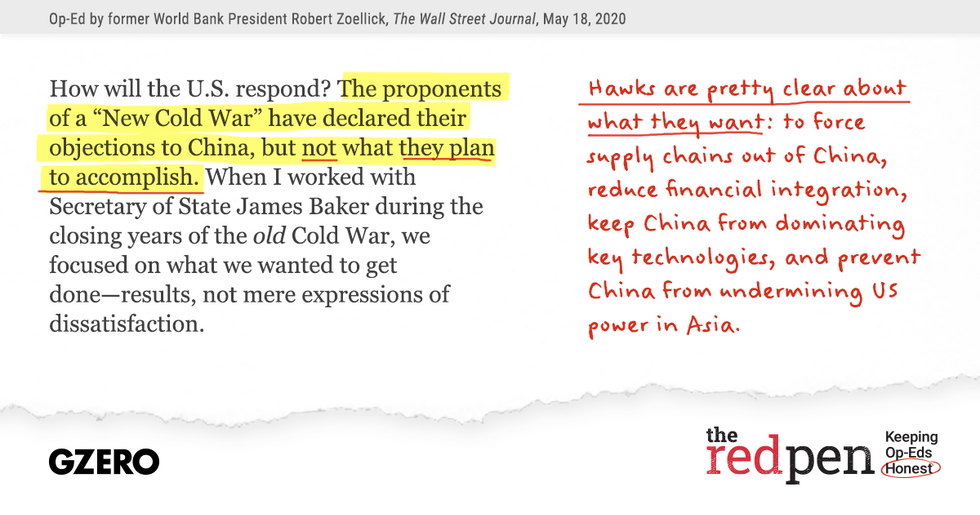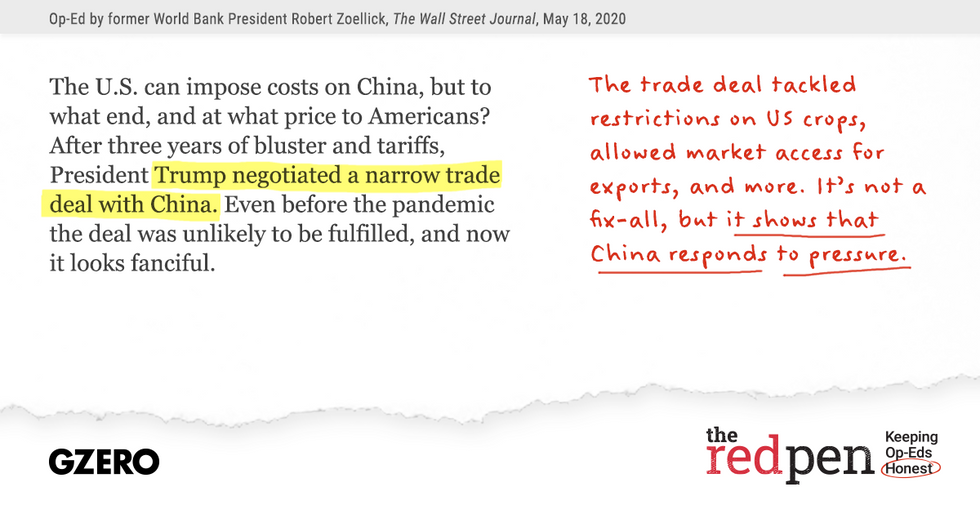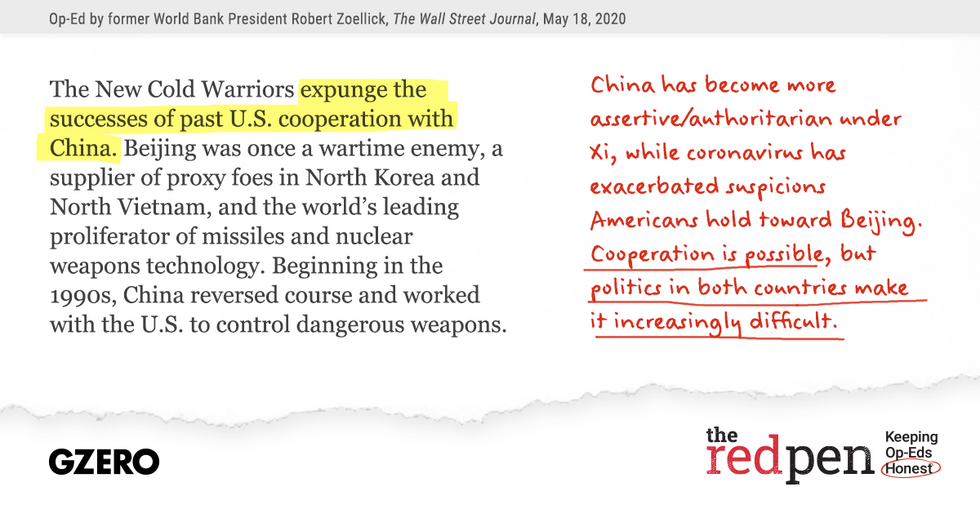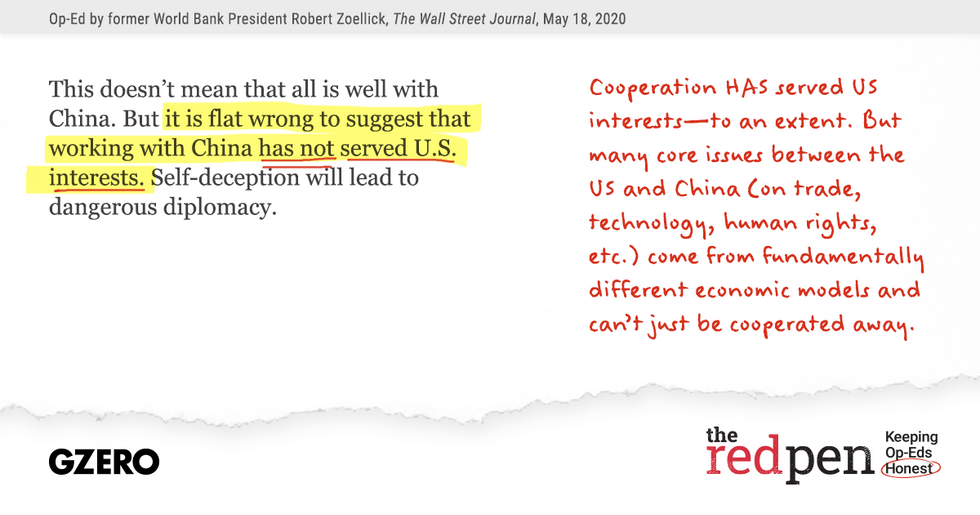Trending Now
We have updated our Privacy Policy and Terms of Use for Eurasia Group and its affiliates, including GZERO Media, to clarify the types of data we collect, how we collect it, how we use data and with whom we share data. By using our website you consent to our Terms and Conditions and Privacy Policy, including the transfer of your personal data to the United States from your country of residence, and our use of cookies described in our Cookie Policy.
{{ subpage.title }}
The US can compete with China without starting a new Cold War
Have you ever read a major op-ed and thought to yourself, "no! no! no! That's just not right!" Us too. This week, Ian Bremmer is joined by analysts Kelsey Broderick and Jeffrey Wright to take the Red Pen to former World Bank president Robert B. Zoellick's Wall Street Journal op-ed.

Hawks are pretty clear about what they want: to force supply chains out of China, reduce financial integration, keep China from dominating key technologies, and prevent China from undermining US power in Asia.

The trade deal tackled restrictions on US crops, allowed market access for exports, and more. It's not a fix-all, but it shows that China responds to pressure.

China has become more assertive/authoritarian under Xi, while the coronavirus has exacerbated suspicions Americans hold toward Beijing. Cooperation is possible, but politics in both countries make it increasingly difficult.

Cooperation HAS served US interests—to an extent. But many core issues between the US and China (on trade, technology, human rights, etc.) come from fundamentally different economic models and can't just be cooperated away.
—With research by Kelsey Broderick and Jeffrey Wright
